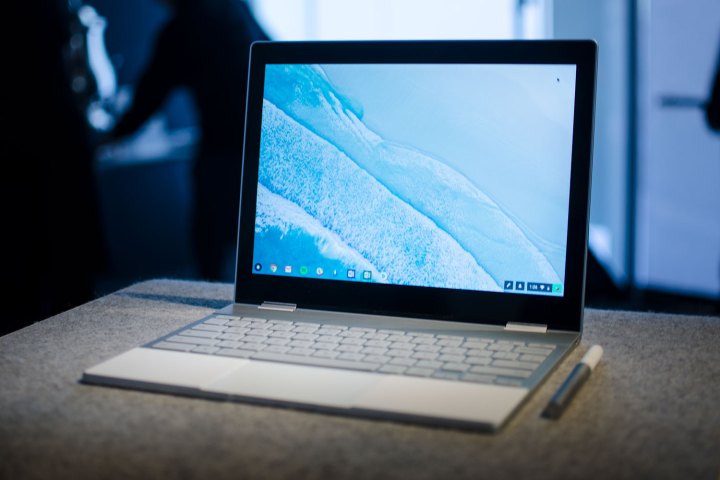
Not all Chromebooks will support Linux software when the feature comes to Chrome OS later this year. So far, 14 devices may be excluded from the list including Google’s own Chromebook Pixel introduced in 2015. The current list, generated on Reddit, consists of four models from Acer, four models from Asus, two from AOpen, and more.
Google revealed support for Linux software on Chrome OS during its developer conference earlier this year. The idea is for developers to test their Android- and web-based apps on Chromebooks. Linux would run inside a virtual machine designed specifically for Chrome OS, which is simply an emulated high-end computer running within your PC’s real-world system memory.
“It starts in seconds and integrates completely with Chromebook features. Linux apps can start with a click of an icon, windows can be moved around, and files can be opened directly from apps,” Google said in May.
Therein lies the problem. Support for virtual machines didn’t appear in the Linux kernel (aka core) until version 4.8. That said, Google may update the operating system on Chromebooks, but the Linux core will remain the same. Chromebooks now appearing on the makeshift blacklist are based on the Linux 3.14 kernel and will never see an upgrade, making them incapable of running virtual machines.
The kernel is the pure core of an operating system. With Linux, one kernel is made available for free, enabling developers to create an operating system around this core. Examples include Ubuntu, Debian, Android, Chrome OS and so on. Android devices actually suffer a similar issue: Phones and tablets may receive a few updates throughout the year, but never an upgrade to the actual core. New kernels are typically introduced when Google releases a new version of Android.
Meanwhile, Google’s list of Chromebooks supporting Android isn’t quite so short. A beta version of Android support appeared in 2014, but unlike Google’s plans for Linux software, apps run natively on Chrome OS within a software “container.” These sandboxed bubbles provide apps access to key Chrome OS services and hardware without changes to their code.
That said, Linux-based software will run on a virtual machine, but that emulated PC will still reside within a sandboxed software container. Keep in mind that virtual machines and containers are not the same: Virtual machines emulate high-end PCs while containers create an isolated “bubble” within the kernel to provide specific resources to software. Running a virtual machine means Chromebook owners won’t be forced to reboot the device into Developer Mode.
Google dubs this Linux push on Chrome OS as Project Crostini. When support for Linux software actually arrives on Chrome OS is up in the air for now although Google states “this year.” Given a virtual machine is involved, not all Chromebooks will be able to support Linux software anyway due to hardware limitations, not just the outdated Linux kernel issue.
Check out our list of the best Chromebooks you can buy for 2018 right here.


